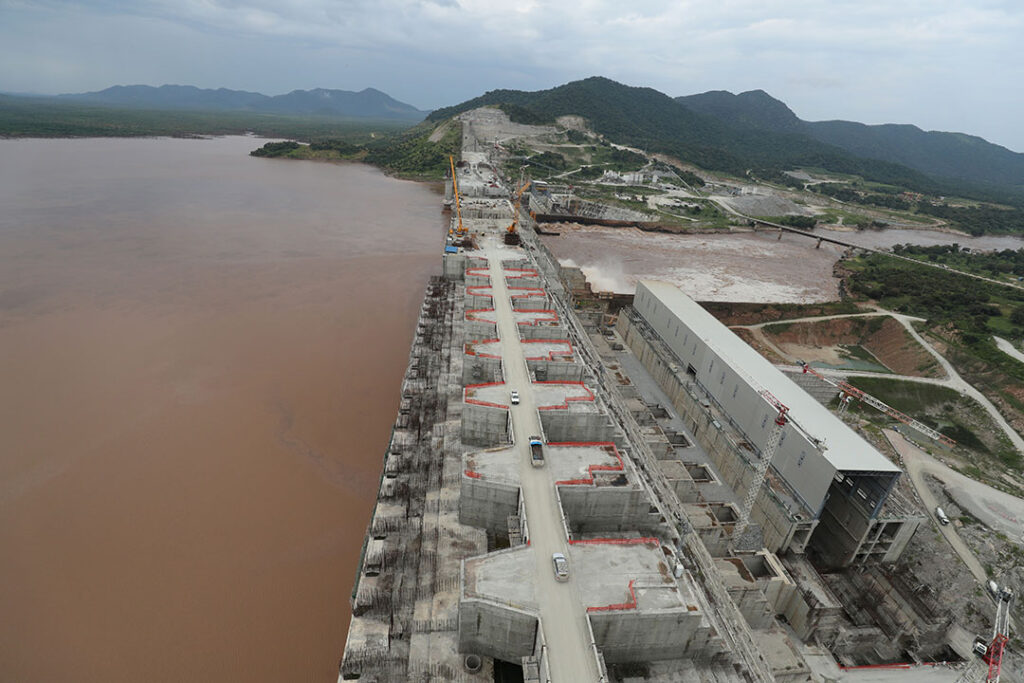ADF STAFF
The Nile River is essential to life for many in the 11 countries it passes through. A new dam offers a different type of prosperity for some, but it threatens regional stability.
Since Ethiopia announced plans in 2011 to build the $4.8 billion Grand Ethiopian Renaissance Dam (GERD), controlling the Nile water flow has become a contentious issue for downstream countries Sudan and Egypt.
The GERD represents a tangle of complicated problems.
Egyptians have based their civilization around the river for thousands of years. More than 95% of the country’s current population, estimated at more than 102 million, is centered on the Nile, which supplies about 90% of the country’s fresh water.
Egypt’s claim to the river comes from a deal with Great Britain in 1959 that gave it 55.5 billion cubic meters (bcm) of water a year. Sudan was given 18.5 bcm annually, although it doesn’t use all of it.
No other countries were included in the agreement, and Ethiopia doesn’t recognize it.
Ranked 173 out of 189 countries and territories in the most recent United Nations Human Development Index, Ethiopia wants to stake its growth and future on its abundant water resources, with 86% of the Nile originating in the country’s highlands.
“This is not an ordinary dam; this is the largest development project in Africa,” Ashok Swain, the United Nations Educational, Scientific and Cultural Organization chair on International Water Cooperation, said on an Al-Jazeera broadcast. “There is a lack of trust and a lack of communication. … The real problem is the politicians politicizing the water.”
In 2020, those leaders ratcheted up their rhetoric because all attempts at an agreement have failed.
“The Nile River must not be monopolized by one state,” Egyptian President Abdel-Fattah el-Sisi said in a press conference, listing his central concerns as agriculture security and water management in the face of persistent threats of drought. “For Egypt, the Nile water is an existential matter.”
Ethiopian Prime Minister Abiy Ahmed, however, insists his country is merely trying to meet the electricity needs of a rapidly growing population.
“We have no intention to harm these countries,” Ahmed said in a press conference, emphasizing that approximately 80% of Ethiopians do not have access to electricity. “We cannot afford to continue keeping more than 65 million of our people in the dark.”
The project is 75% complete. When finished, its capacity of 6.45 gigawatts will make it Africa’s largest hydroelectric power plant and the seventh largest in the world. The dam will produce 15,000 gigawatt hours a year — a 200% increase in electricity that Ethiopia aims to use and export.
The first hurdle is how quickly to fill the reservoir. Ethiopia has proposed a four- to seven-year schedule. Concerned about drought, Egypt has asked for mechanisms to stop the filling in the event of low rainfall or reduced water levels on the Nile.
At times the conflict appears intractable.
On July 15, one day after another round of talks failed, Ethiopian state television reported GERD reservoir had begun filling. Egypt demanded “urgent clarification” regarding satellite images showing the reservoir expanding behind the dam. Later that day, Ethiopia’s minister of water insisted the rising reservoir was the result of heavy rainfall, but he did not explicitly state whether outlets within the dam had been closed.
“After a decade of stalled negotiations, reaching a successful deal between the three countries on the dam as well as on outdated water-sharing agreements isn’t going to be easy,” Ahmed Soliman, Horn of Africa research fellow at Chatham House think tank, said on Al-Jazeera. “It requires brave leadership and deescalation of nationalist rhetoric as well as compromise by all sides to ensure that the gaps are narrowed between them.
“This diplomatic success is badly needed for both regional stability and progress.”

